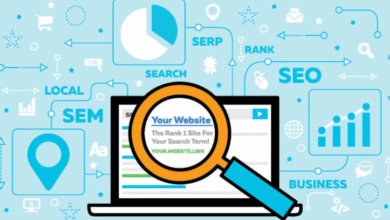How HR Outsourcing Can Streamline Business Operations

Key Takeaways
- Outsourcing HR functions enables businesses to focus resources on their unique strengths, driving innovation and long-term value creation in their chosen markets.
- Expert HR outsourcing ensures continuous compliance with ever-expanding regulations, significantly reducing legal and financial risks for companies.
- Substantial cost savings are achieved by reducing administration overhead and reallocating resources to core business activities.
- Employee experience improves through streamlined HR processes, leading to increased satisfaction and higher retention rates.
Today’s highly competitive business environment puts mounting pressure on organizations to operate more efficiently, control costs, and stay focused on their core mission. In such a dynamic landscape, companies of all sizes are seeking innovative strategies to maintain an edge. Among the many available solutions, HR outsourcing—delegating human resource functions to experienced external providers—has established itself as a powerful lever to drive operational excellence.
Regardless of the stage of your business—whether an emerging startup or a seasoned enterprise—outsourcing HR functions can alleviate administrative headaches while delivering significant, measurable benefits. As outlined by https://www.adp.com/what-we-offer/hr-outsourcing-and-peo/hr-outsourcing.aspx, HR outsourcing offers scalable support for tasks such as payroll, benefits administration, and compliance, enabling internal teams to focus on strategic growth. Not only does this partnership simplify routine processes, but it also creates lasting value through greater productivity, reduced costs, and improved workforce morale. In an era where every decision and resource allocation matters, working with outside HR partners is a proven tactic to help companies move faster and more strategically.
Enhancing Focus on Core Business Activities
Internal HR management, while essential, can easily become a drain on upper-level management’s attention as well as company resources. HR processes—covering payroll, benefits, documentation, and compliance—are detailed and time-consuming, diverting focus from top priorities. By transferring these complex, repetitive tasks to specialized HR providers, business leaders can devote more energy to strategy-building, forging new business relationships, and refining customer experiences. As a result, organizations are nimbler and better equipped to seize new growth opportunities. When leaders and employees have fewer administrative distractions, they can innovate, collaborate, and respond quickly to shifting market demands, laying a foundation for future success and a true competitive advantage.
Access to Specialized Expertise
Outsourced HR providers employ teams of highly trained professionals who stay abreast of the latest HR practices, laws, and technology. These experts are skilled in the nuances of employee relations, benefits management, compensation, compliance with federal and local regulations, recruitment, and conflict resolution. This breadth and depth of knowledge ensures each phase of the HR life cycle—recruitment, onboarding, performance management, training, payroll, and even offboarding—is managed accurately and in full legal compliance. For example, HR professionals can help organizations navigate complex scenarios, such as accommodations for individuals with disabilities, maintaining accurate records for wage and hour law audits, and implementing diversity, equity, and inclusion initiatives. Engaging external specialists not only reduces costly mistakes but also gives businesses the peace of mind that comes from knowing every HR process is handled in accordance with best practices.
Cost Savings and Efficiency
Employing a full internal HR team can generate significant fixed costs, including salaries, benefits, training, office space, and investments in specialized technology platforms. In contrast, HR outsourcing transforms these fixed expenses into more manageable variable costs that can be tailored to your business’s needs. According to Business News Daily, outsourcing HR not only reduces overhead but also provides access to experienced professionals who handle critical functions such as payroll, benefit enrollment, regulatory filings, and record-keeping. Trusted HR providers standardize and automate repetitive processes, which helps minimize human error, missed deadlines, and compliance violations—factors that often lead to unexpected expenses and liabilities. Over time, businesses see improved budget predictability, fewer costly setbacks, and the flexibility to allocate more resources to strategic growth initiatives, innovation projects, and customer service enhancements.
Improved Employee Satisfaction and Retention
Modern employees increasingly expect HR to be responsive, accessible, and efficient. Outsourcing HR allows companies to meet these expectations with professional-grade support and services that would be difficult or expensive to replicate internally. Providers may offer online platforms that provide payroll access, self-service benefits management, and prompt responses to employee inquiries, thereby reducing confusion and frustration. When staff know their questions are answered efficiently—and problems like payroll errors are corrected quickly—it builds trust and leads to higher engagement. A positive employee experience reduces absenteeism, fosters a stronger workplace culture, and enhances loyalty.
Scalability and Flexibility
Every business must adapt to market changes, whether they involve periods of rapid growth or sudden contraction. One of the biggest advantages of partnering with an HR outsourcing firm is the built-in scalability and flexibility the model affords. Services can be quickly ramped up as you hire new staff, expand into new regions, or tackle mergers and acquisitions. Alternatively, if your business needs to tighten its belt, HR partners can dial back services with minimal disruption—something much harder to achieve with a static internal department. This agility enables you to be better prepared for unexpected shifts in your business landscape and pursue opportunities without delay. It also removes the burden of constantly recruiting, training, and potentially downsizing in-house HR staff in response to new business needs.
Enhanced Compliance and Risk Management
Human resources compliance is a complex and high-stakes area, with employment laws and regulations changing frequently at the federal, state, and local levels. Errors in HR documentation, wage calculations, discrimination policies, or tax filings can expose companies to hefty fines, audits, and even legal action. Outsourced HR partners make compliance their top priority, monitoring new legislative developments and swiftly implementing policy changes. Their dedicated teams conduct regular audits, provide ongoing training, and use technology to stay on top of filing deadlines and changes in employment law. This reduces risk, minimizes liability, and maintains the company’s reputation.
Access to Advanced HR Technology
HR outsourcing firms often invest in the latest technology platforms, offering advanced digital tools that many small- and mid-sized businesses might otherwise struggle to afford. These integrated systems automate payroll processing, track employee hours, manage benefits enrollment, and provide real-time analytics on workforce trends. With self-service portals, employees can access pay stubs, request time off, and manage benefits independently, minimizing bottlenecks and empowering staff. These tools also deliver actionable insights that help leadership spot opportunities for process improvements and make more informed HR and business decisions.
Conclusion
HR outsourcing has emerged as a practical and future-focused strategy for businesses seeking to streamline operations, reduce costs, and remain adaptable in the face of constant change. By entrusting HR processes to trusted partners, companies unlock access to deep expertise, cutting-edge technologies, and scalable solutions tailored to their evolving needs. The result is not just greater efficiency and regulatory compliance, but also a better employee experience and renewed strategic focus—key ingredients for organizational growth and innovation in today’s demanding business world.





